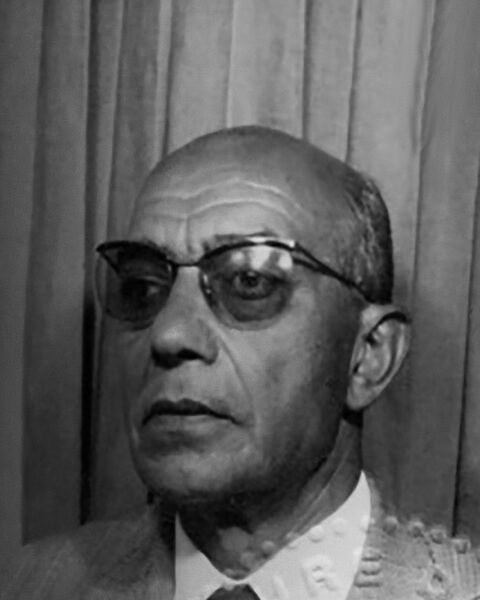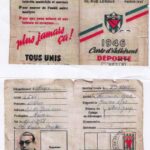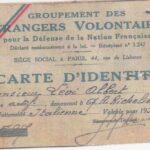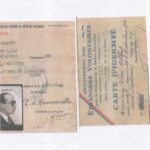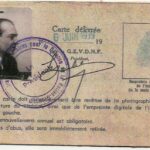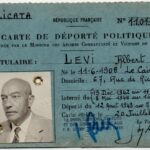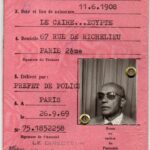Albert Levi
- Place of Birth: Cairo, Egypt
- Date of Deportation: 19 December 1942
- Address when Deported: Paris, France
- Sites deported to: Norderney,
By Piers Secunda
Albert Levi was born into an old Alexandrian Jewish family in Cairo, Egypt, on the 11th of June 1908. He family spoke French and he went to school at the Lycée Français d’Alexandrie. In the early 1930s, Albert and his mother left Egypt and obtained Italian citizenship; from Italy they travelled on to France.
Whilst living in Paris before the Second World War started, Albert opened a small brush factory, and married Marie-Louise Tournier. In June 1939, he volunteered as a foreign national to join the French Army, but not was fully enlisted before the French defeat of June 1940. On December the 19th 1942, Albert was arrested for not wearing the yellow Star of David on his coat. He was taken to the police station and from there detained at La Conciergerie in Paris and then at the Beaune-La-Rolande camp. His official deportation card states that he was detained from December 19th 1942 to August 11th 1943.
On August 11th 1943 Albert was transferred from the French authorities to the Germans and deported to Norderney Camp in Alderney. Albert’s first son Gilbert was born a few weeks before he was deported to Alderney. In Norderney Camp, prisoners were subjected to heavy forced labour, starvation, and violent treatment by the guards. He told his grandson Didier that there were Russian prisoners in Norderney Camp who were equally mistreated and that many of them died. Albert described watching a Russian prisoner pick up a potato from the ground, and a German soldier immediately shooting the Russian through the head.
In May 1944, Albert Levi was transferred from Alderney to the French mainland, to be transported to Germany and then further East. They were stationed on the mainland for a few days, likely between the 8th and 19th of May. On the 19th of May, just before getting on the train, Albert escaped with good friend and fellow Alderney detainee André Cicurel. They decided to try making their way to Paris, which Albert reached in the chaos of the Summer of 1944. He hid there, trying to help the local resistance, until the Liberation.
After the war, Albert Levi returned to his previous life and took back his small brush factory from the “Aryan administrator” who had been running it since his arrest. He became an active member of the Association of the Former Alderney Detainees and remained in touch with his deportee friends until the late 1970s.
Albert had two sons, two grandchildren and three great grandchildren. Although he rarely spoke about his imprisonment, towards the end of his life he talked about it with his grandson Didier. Amongst the few conversations they had, Didier vividly recalled Albert saying: “Germans are good people. We have to reconcile with them” Didier says that this statement brought him comfort throughout his own life.
Albert Levi died in Paris in 1981.
Sources:
- Didier Levi, grandson of Albert Levi
Map
- Cemetery / Mass Grave
- Concentration Camp
- Forced Labour Camp
- Prison
- Worksite / Fortification
